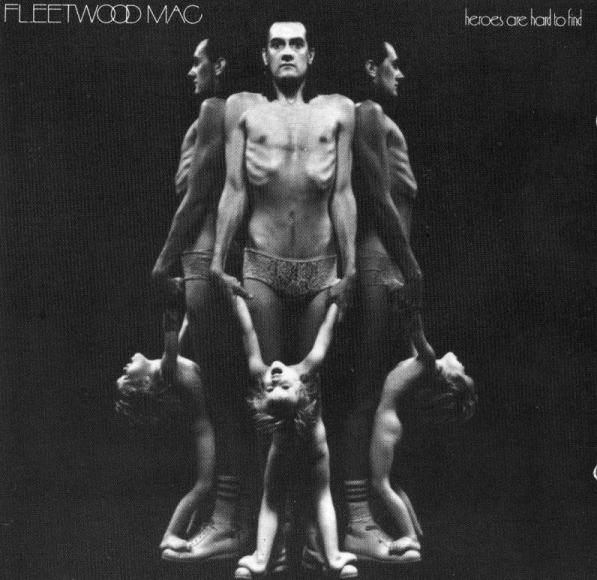
Heroes are Hard To Find (1974)

1. Heroes are Hard to Find
2. Coming Home
3. Angel
4. Bermuda Triangle
5. Come a Little Bit Closer
6. She's Changing Me
7. Bad Loser
8. Silver Heels
9. Proove Your Love
10.Born Enchanter
11.Safe Harbour
By the time Heroes Are Hard to Find appeared in 1974, Fleetwood Mac had become a band in permanent transit—musically, geographically, and personally. Lineup volatility was by now a given, and the latest casualty was guitarist Bob Weston, whose affair with Mick Fleetwood’s wife didn’t so much raise eyebrows as reinforce a pattern: if you stayed in Fleetwood Mac long enough, something was bound to go off the rails.
This left the band as a pared-down quartet—Mick Fleetwood and John McVie holding the ever-reliable rhythmic fort, with Bob Welch and Christine McVie left to helm the songwriting duties. It was a logical enough arrangement; after all, Welch and McVie had been the creative center of the group for several albums by this point. And yet, Heroes Are Hard to Find, Welch’s final contribution to the Mac catalogue, is also the least essential of his tenure.
The problem isn’t effort. It’s inspiration—or the curious lack thereof. Despite maintaining the band's well-honed melodic sensibility and lightly psychedelic atmosphere, most of the songs here fall somewhere between pleasant and puzzling.
Welch, long known for his astral tendencies, here pushes things to the edge of conceptual coherence. Coming Home sounds like a transmission from deep space—a chant to an unknown galaxy rather than a coherent pop tune. One begins to wonder if Welch was still writing songs for a rock band or attempting to communicate with extraterrestrials. Bermuda Triangle (yes, that’s the actual title) continues in this vein, draped in cosmic paranoia and watery metaphors. His earlier work, though occasionally cryptic, still felt grounded. Here, he seems untethered—adrift in the very mythologies he's invoking.
McVie, usually a reliable source of warm, tuneful pop, falters slightly. The title track opens the album with blaring horns—an uncharacteristic flourish that feels entirely out of place. Fleetwood Mac had dabbled in many styles, but brass sections were rarely part of their vocabulary, and with good reason. The track never quite recovers from the mismatch. Bad Loser, elsewhere on the record, is so steeped in Welch’s sonic mood that it’s easy to mistake it for his own until McVie’s unmistakable voice finally materializes.
And yet, buried in the muddle are glimpses of the band’s inherent strengths. Welch contributes Angel, a rare moment of clarity and structure—melodically assured, emotionally accessible, and almost refreshingly earthbound. It’s not a masterpiece, but it proves he could still write compelling songs when he chose to stay within orbit.
McVie also redeems herself with Come a Little Bit Closer, a sweeping, beautifully arranged ballad that easily sits alongside her best work from Mystery to Me. Its lush, confident arrangement is exactly the kind of song the album needed more of. Prove Your Love is less impressive, but still manages to rise above the general haze—pleasant, if not particularly memorable.
As a whole, Heroes Are Hard to Find feels like a band reaching the end of a chapter. The experimentation lacks the charm of previous efforts, and the cohesion of Bare Trees or Mystery to Me is sorely missed. Welch and McVie sound weary—not yet burned out, but clearly in need of reinvention. The songs aren’t poor so much as indistinct. One finishes the album with the sense that the band had ideas, but no longer the energy to fully realize them.
Of course, no one could have guessed what would happen next. Just a year later, a seismic shift would bring Lindsey Buckingham and Stevie Nicks into the fold, catapulting Fleetwood Mac into pop mythology. But Heroes Are Hard to Find marks the final breath of the transitional years—a curious, often meandering album that closes one of the band’s strangest and most exploratory chapters.
Go back to the main page
Go To Next Review